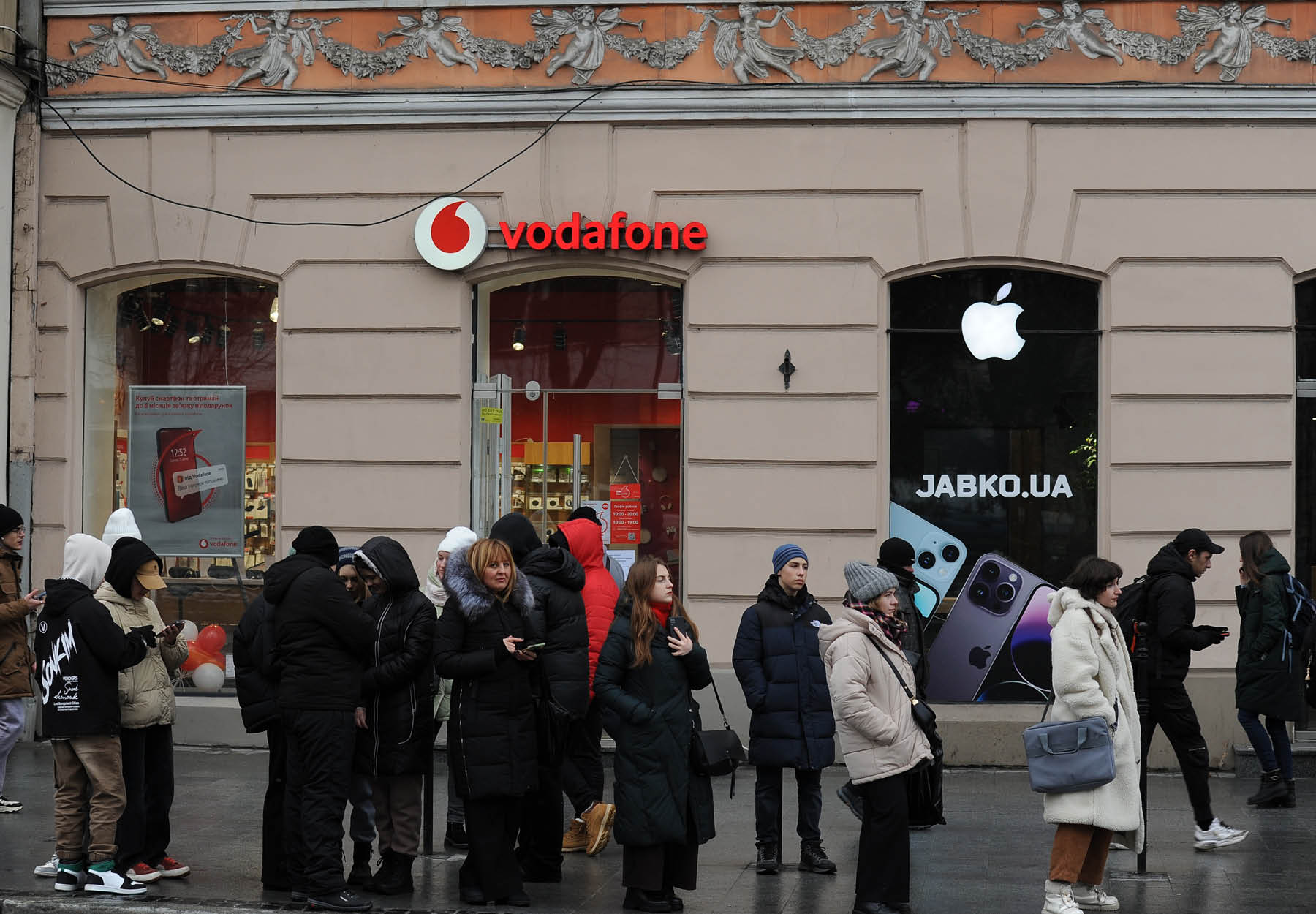The benefits of investing in a war-torn country like Ukraine

Investing in a war zone is not for the faint-hearted. But can there be ways to mitigate risk while maximizing return and contributing positively to the recovery and support of a war-torn region? In the case of Ukraine, I believe we have the experience to say: yes, there are.
As the leader of NEQSOL Holding, a global investment holding employing 12,000 people in its businesses in telecoms, energy, construction and high-tech industries around the world, we are proud to also be one of the largest investors in Ukraine.
I recently attended the Ukraine Recovery Conference held in Berlin in June, which witnessed an impressive level of attendance from governments, policy makers and the private sector worldwide. The global community seems, finally, to be rapidly moving to action to help Ukraine.
For any serious business, growth requires a clear vision, resilient teams and, of course, an appropriate appetite for risk. Doing the same during times of war or crisis is a much more complex matter.
While it hasn’t been easy to operate during an active war, our Vodafone Ukraine telecom business has proven to be a sound investment – testament to the strength, collective intelligence and resilience of the Ukrainian workforce. It is from this vantage point, that I wanted to share some insights based on our experience there over the last five years.
A remarkable journey
The war in Ukraine is a human tragedy, which has impacted the entire country, including our 4,000 employees and 20 million customers. Businesses had to adapt their financial plans to prioritize the safety of people, security of assets and huge logistical challenges. Creditors have paused projects that could have injected more money into the economy.
Despite these factors, our journey with Vodafone Ukraine has been nothing short of remarkable. We have started by modernizing the telecommunications infrastructure and in doing so, returned millions of people to a high-tech economy. This turned out to be a great technological protection for our own business continuity as well.

Vodafone Ukraine was a strategic investment for us, rather than an opportunistic one.
A recent cyberattack on our major competitor in December 2023 demonstrated how vital a role the telecom sector plays in a country in conflict, where communications are as essential as bread and water.
This was not just a simple good bet. Vodafone Ukraine was a strategic investment for us, rather than an opportunistic one. We have been in the telecom industry since 2005 when we acquired Bakcell, the first mobile operator built in Azerbaijan.
By bringing together a multifaceted and multi-industry business portfolio in telecoms, we were able to ultimately strengthen strategic management approaches in the sector.
Vital expansion
Our acquisition of Vodafone Ukraine in 2019 expanded our footprint in this vital sector. Our team in Ukraine has demonstrated a heroic performance during the war, as their operations included activities in remote locations, where infrastructure was often a target of conflict.
Throughout this period, we also provided financial support to 150 employees whose homes were destroyed, and we assisted in relocating hundreds more to safer places. The company invested over US$35 million into social causes alone in 2022, with projects ranging from education to medical relief to the purchasing of ambulances and the construction of community bomb shelters.
Our teams have fixed more than half a million network disruptions since the war commenced in 2022. They have also repaired over 3,000 kilometers of fiber optic cables, which helped to renew coverage and services in more than 800 Ukrainian towns and villages. In addition, they upgraded 4,000 4G base stations and built 723 new base stations.
Our capital expenses reinvested in Ukraine is multiple times more than what we have spent to purchase the business.
Yet, from adversity, also comes innovation. The team was not only focused on recovery and repair but on inventing better ways of operating in their new reality. As such, they embraced a new technology called Gigabit Passive Optical Network, which allows high-speed optical internet without the need for electricity. It is now in high demand.
The telecom industry requires constant reinvestment to remain technologically and commercially relevant. Staying connected is an essential need in today’s world and a continued flow of capital is needed to adapt to new demands, while maintaining robust network infrastructure. Our capital expenses reinvested in Ukraine is multiple times more than what we have spent to purchase the business.
We have done this because we believe in the resilience of Ukraine’s economy and in its potential to build back better than before.
The American Chamber of Commerce in Ukraine, for example, reports that 86 percent of its members are fully operational after two years of war. Thousands of businesses continue to pay taxes, create jobs, invest, rebuild communities, support humanitarian efforts and deliver essential services in exceptionally difficult and unpredictable circumstances.
Supporting recovery
What we observe is relative macroeconomic stability, achieved through immense cooperation among the government, national bank and the business community. Interest rates have been reduced, and there is managed exchange rate flexibility.
The World Bank reported that the Ukrainian economy recovered by 4.8 percent in 2023. It projects growth of 3.2 percent for 2024, which reflects a smaller harvest and persistent labor shortages.
Moreover, a United Nations-backed study estimates the reconstruction and recovery costs for war-torn Ukraine at US$486 billion over the next decade. The European Union is working on a US$54.7 billion envelope to support the recovery projects.
We believe the economic recovery process will be strong. As the American Chamber of Commerce in Ukraine has stated, "It’s risky to invest in Ukraine right now, but it’s riskier not to invest. It’s a risk-and-reward model in action."
The Ukrainian government has ambitions to achieve US$1 trillion in gross domestic product over the next 10 years. The need to rapidly develop the country’s economy within a relatively short period of time is creating an unprecedented number of opportunities for investors within the region.
Those who have built resilient teams and financial strategies, are on the right path – both for themselves and the country.
IT innovations and financial technologies will be just as important as the reconstruction of the infrastructure and industry. According to data from the National Bank of Ukraine, exports of IT services in 2022 amounted to US$7.34 billion, an increase of 5.8 percent compared to the figure of the previous year. The number of IT specialists in Ukraine actually grew by eight percent in 2023.
Mitigating risk is still essential, and this can be done by following the advice and options put forth by world-leading insurance agencies. The Ukrainian government is also working closely with the private sector to develop a list of guarantees, which encourage robust investment and job creation.
World Bank President Ajay Banga said that if the right conditions are created, as much as one-third of Ukraine’s future needs could be met with private sector financing, and one can hear much talk of plans to privatize state-owned enterprises.
It is not necessary to wait until the end of the war to make investment decisions. Indeed, it will be those with the requisite vision, resilience and risk mentality that will prevail.
I believe those approaching investments in war time from an opportunistic lens don’t exactly know what they are getting into. However, those subscribing to a committed, long-term perspective, and those who have built resilient teams and financial strategies, are on the right path – both for themselves and the country.